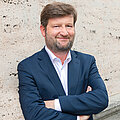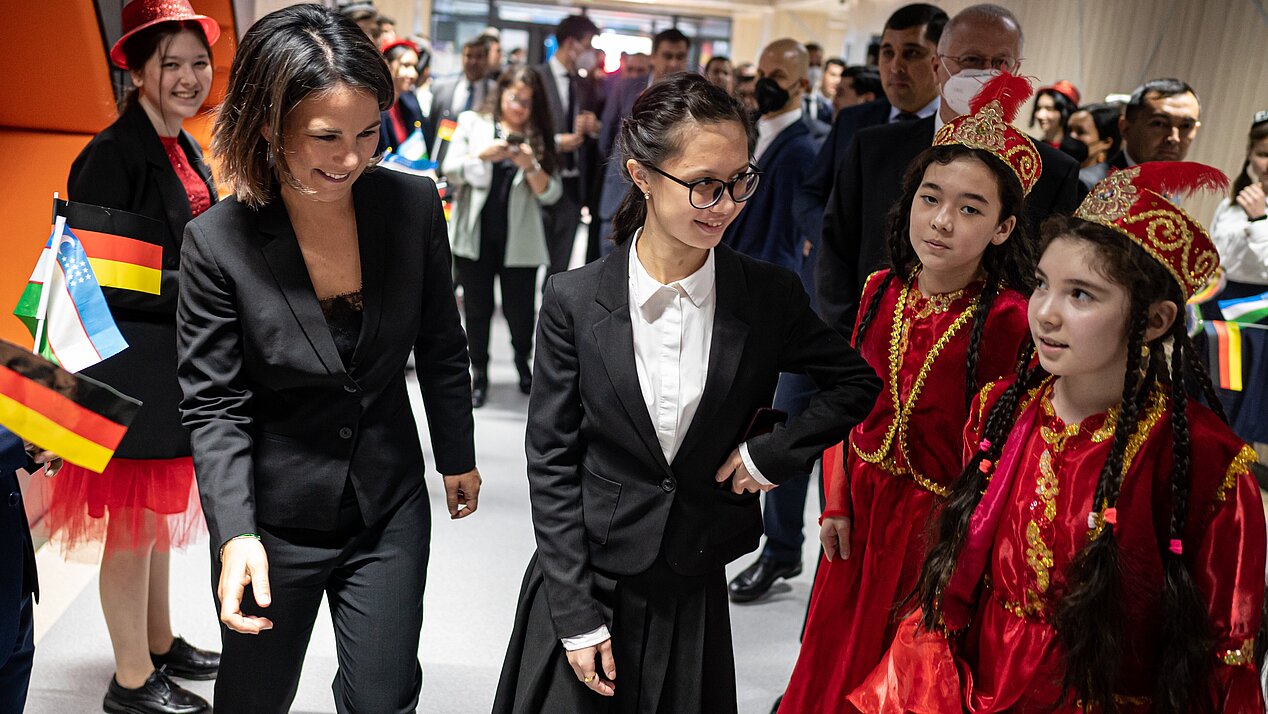
Joachim Staron is an editor of Internationale Politik. He has previously held positions including Press Officer at ifa – Institut für Auslandsbeziehungen in Stuttgart.

The questions start with the term itself, foreign cultural policy – officially referred to in full as "foreign cultural and education policy". That’s the term the Germans use, somewhat long-windedly, to denote what English speakers refer to using concepts such as cultural diplomacy or soft power. There is a dearth of knowledge but plenty of misconceptions about how culture is used in politics. A few words of clarification.
The opposite is true. And yet those who deal professionally with peace research or cultural dialogue are all too familiar with this criticism disguised as a question. When times get tougher and money shorter, the "soft" themes are usually the ones that end up at the top of the budget experts' cutback list.
Now, it could be argued that such an attitude may be understandable in the short term. For example, when it is a matter of stopping an aggressor like Vladimir Putin or ensuring the defence readiness of the German Federal Armed Forces.
But long-term, conflict researchers like Hans-Joachim Gießmann, a member of the Federal Government's Advisory Board for Civilian Crisis Prevention and Peacebuilding, regards this attitude as a strategic mistake. Today, cultural factors play such a decisive role in the interaction between powers with diametrically opposed views of society that they cannot be ignored in conflict prevention.
Against this backdrop, the war of cultures that Putin declared on the "decadent West", on democracy, freedom and tolerance, is a strong argument in favour of further expanding foreign cultural work.
And the new National Security Strategy says that the geopolitical conflicts on the horizon will "not only play out between countries, but increasingly also at the societal level. We are strengthening our cultural relations and education policy and science diplomacy, which drive forward our exchange with the world on values and interests, and thereby also safeguard Germany's opportunities for connection and communication."
To match the fine words with financial actions, an extra round of the 2023 federal budget was required, however. Initially, cuts had been under discussion, some of them substantial. In an article in the Süddeutsche Zeitung at the beginning of September 2022, Paul Munzinger commented that the global crisis of democracy should really be reason enough to increase expenditures for foreign cultural and educational policy. "Surprisingly, the opposite is the case."
In the wake of subsequent negotiations, there was a happy ending, at least for the time being. The cuts were called off; the current total budget is 1.72 billion euro. Under the draft budget tabled for 2024, it is likely to fall rather than rise, however.
Anyone harbouring doubts that this is money well spent should take a look at Beijing. Would a country like China, relatively unsuspicious of doing art for art’s sake, finance some 550 Confucius Institutes worldwide and invest several billions in its soft power year after year if it did not anticipate tangible benefits as a result?
Define "too much". The 1.072 billion euro currently spent on foreign cultural and education policy is approximately one-seventh of the total budget of 7.475 billion euro earmarked for the Federal Foreign Office from the German budget for 2023.
Considering that foreign cultural work is, in the words of Willy Brandt the "third pillar" of foreign policy, that amount does not seem excessive when seen in purely mathematical terms. And it becomes even more relative when one takes account of the fact that foreign cultural policy comprises a share of approximately just 0.23 percent of the total federal budget.
The following are funded out of this 1.072 billion (a long, but incomplete list): the Goethe Institut in Munich with 158 institutes in 98 countries, ifa – Institut für Auslandsbeziehungen in Stuttgart and Berlin, the German Academic Exchange Service (DAAD), the Alexander von Humboldt Foundation, the Central Agency for German Schools Abroad, which supports approximately 140 German schools worldwide, the Pädagogischer Austauschdienst and the German Commission for UNESCO (all in Bonn), as well as the Haus der Kulturen der Welt (House of World Cultures) in Berlin, the German Archaeological Institute in Berlin with branches in cities including Athens, Madrid, Rome and Beijing, and Deutsche Welle, Germany’s international broadcaster, with offices in Bonn and Berlin and studios in Brussels, Riga and Washington.
Allow me to make a comparison. The expenditures for foreign cultural work could be used instead to finance some 60 armoured howitzers, just over a seventh of Berlin Airport (BER) or the squad of Champions League winner Manchester City Football Club. Soccer fans who think that is a good deal should not be too euphoric, however.
None – that’s not its job. Not even for Abu Dhabi‘s ruling family itself are the titles won by the 'Citizens' more than a means to an end. As Middle East expert Sebastian Sons wrote in Internationale Politik in the run-up to the World Cup in Qatar, small Gulf emirates use sport "to make their own business model more attractive, attract foreign investors and protect against foreign aggression". So far, Abu Dhabi's investment in Manchester City has paid off in this respect; it remains to be seen whether it will bear fruit in the long term.
We have a more reliable empirical basis when it comes to major sporting events. Writing years ago, also in Internationale Politik, British political consultant Simon Anholt noted that the prestige gained by hosting such an event generally lasts less than a year. According to Anholt, states' reputation can, if at all, change over decades or generations, but hardly ever as a result of targeted manipulation attempts.
So the fact that Germany today is in the top group in various popularity rankings has only little to do with events such as the summer fairy tale of 2006 or the upcoming UEFA Champions League 2024. Nor was the World Cup 2022 just a one-off event in Qatar's soft power strategy, but "the provisional climax in a chain of sporting events and other major cultural events" (Sebastian Sons).
The question remains: How does one measure the success of foreign cultural work? If we are talking about the soft power to which foreign cultural policy contributes, the matter appears to be simple. According to Simon Anholt, there are a whole range of reliable research results documenting that a positive and strong national image brings considerable benefits in terms of exports and foreign direct investment as well as to the tourist industry.
It is rather more difficult to quantify progress in crisis prevention. "There's no glory in prevention", was a comment often heard in the debate on stemming the COVIC-19 pandemic. The success of prevention can also rarely be attributed to specific measures by particular protagonists, says conflict researcher Gerrit Kurtz – "partly because sensitive negotiations usually take place behind closed doors".
In addition, foreign cultural work usually plays an important but largely indirect part in crisis prevention, for example by promoting social cohesion or creating opportunities for free expression of opinion in the "prepolitical sphere".
Seeking to measure the success of language courses, exchange programmes, exhibitions and media contributions raises more questions than it answers. Are participant and visitor numbers the key criterion, or is it the number of online clicks, or the multipliers reached? Also, since the bulk of such activities take place abroad, they go largely unnoticed in Germany. Moreover, it takes generations before it becomes apparent how successful all these activities ultimately turn out to be.
In the end, the success of foreign cultural policy is the sum of countless small successes. Peruvian translator Juan José del Solar, for example, about whom Paul Ingendaay reports in the Frankfurter Allgemeine Zeitung. Del Solar, who learned German at the Goethe-Institut in Lima, translated Goethe, Thomas Mann and other classic German writers into Spanish; experts consider his translation of Elias Canetti's complete works to be ground-breaking.
Or the story from the Goethe-Institut in Lisbon told by Ronald Grätz, former Secretary General of ifa and Director of the Goethe-Institut in Barcelona, in ifa's podcast "Die Kulturmittler:innen" (which can be roughly translated as "The Cultural Conciliators"). During the dictatorship there in the 1970s, a performance was staged of Bertolt Brecht, a writer forbidden at that time. While a suspicious secret service waited outside the door, they knew that the people felt the Institute to be a sanctuary of freedom at that moment: "That’s something people in Portugal have never forgotten."
And who knows whether legendary Sony manager and "father of the compact disc" Norio Ohga's choice of Berlin as Sony’s European headquarters in the year 2000 was partly influenced by the fact that he once studied in Germany on a German Academic Exchange Service scholarship? That question can be answered with as little certainty as the one concerning the legend about the playing time of a CD: it is said that Ohga's wife Midori expressed the wish to have her beloved Beethoven's Ninth Symphony fit onto one CD in its entirety, and at that time, the longest recording of the symphony lasted 74 minutes.
Published originally on 28 August 2023 under the title Gegen den Strich: Auswärtige Kulturpolitik (Against the Grain: Foreign Cultural Policy) in Internationale Politik 5, September/October 2023, pp. 100 -105

Joachim Staron is an editor of Internationale Politik. He has previously held positions including Press Officer at ifa – Institut für Auslandsbeziehungen in Stuttgart.